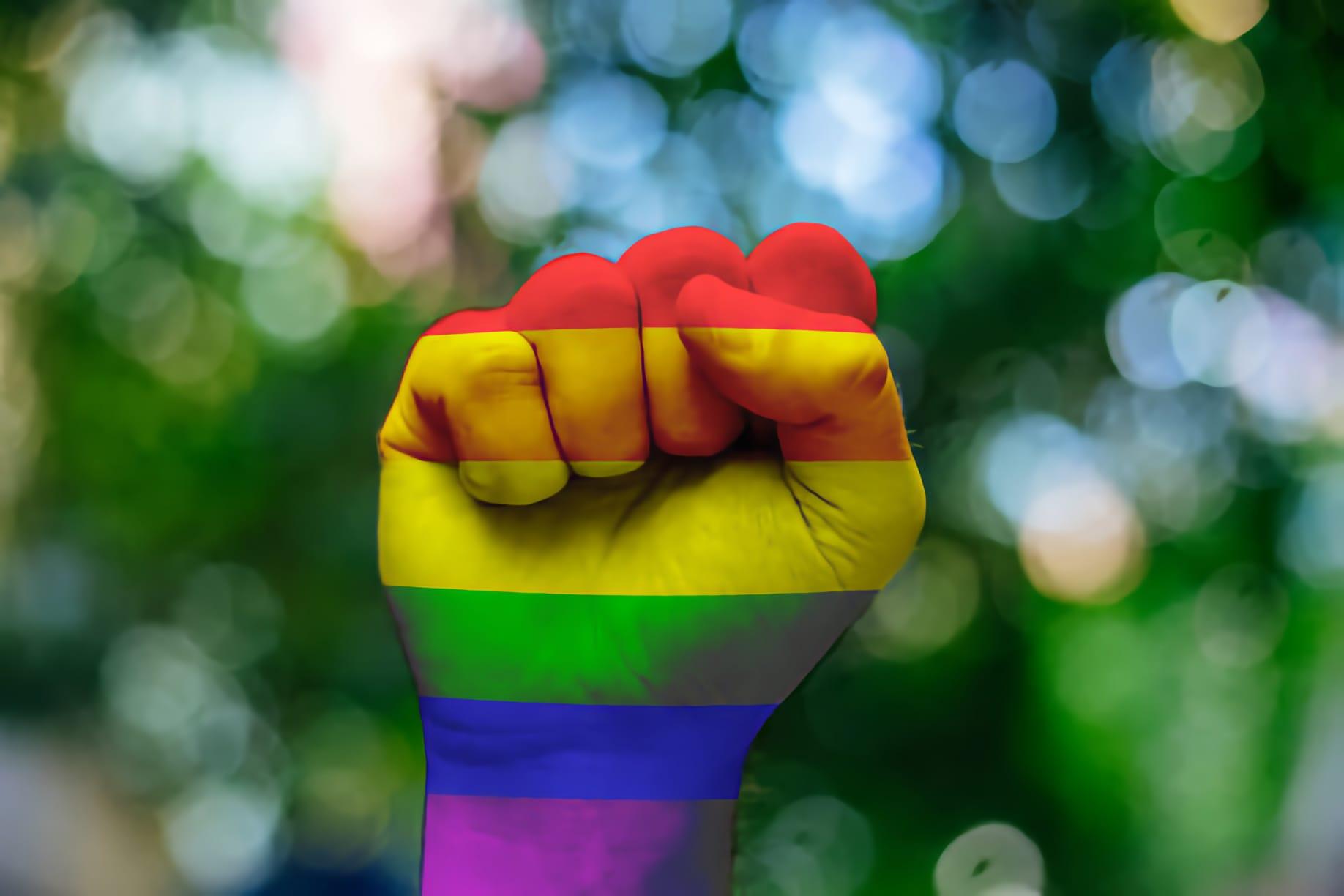Let’s Talk About It: When LGBTQ Folks Hurt Each Other

We talk a lot about homophobia, transphobia, and the fight for equality from the outside world. But there’s something we don’t talk about nearly enough — the hurt that happens within the LGBTQ community itself. Yep, LGBTQ-on-LGBTQ hate is real. And it can sting just as much, if not more, than what we face from outside.
Whether it’s gatekeeping, judgment, racism, transphobia, body shaming, or just straight-up exclusion, many LGBTQ folks have experienced harm from people who should’ve been safe. It’s confusing and heartbreaking — especially when community is supposed to be our refuge. So let’s unpack why it happens and what we can do about it.
What Does LGBTQ-on-LGBTQ Hate Look Like?
This kind of hate doesn’t always look loud or obvious. Sometimes it's subtle — like mocking someone for being “too masc” or “too fem,” or acting like bisexuality isn’t real. Other times it's more blatant — like racism in dating apps, trans people being excluded from Pride events, or femmephobia in queer spaces.
The core issue? We’re all trying to survive in a world that hasn’t always been kind to us — but sometimes, instead of healing, we end up turning that pain inward or against each other.
Why Does This Happen?
1. Internalized Phobias and Bias
We’ve all grown up in a world that tells us being LGBTQ is wrong, unnatural, or something to be ashamed of. Even when we come out, those messages don’t just disappear. Sometimes we try to distance ourselves from the parts of our own community that don’t feel “acceptable” — like mocking a nonbinary person’s pronouns or calling someone “too dramatic” for being visibly queer.
2. Respectability Politics
Some LGBTQ folks feel pressure to act “normal” or “palatable” to be accepted by society. That often leads to judging others who are more expressive, gender-nonconforming, or politically loud. It’s like, “I’m not like them — I’m the good kind of queer.” But that mindset reinforces the same rejection we’ve all been trying to escape.
3. Racism, Fatphobia, and Classism in Our Own Spaces
Just because we’re queer doesn’t mean we’re immune to racism, body shaming, or elitism. BIPOC LGBTQ folks are often pushed out of white-dominated spaces. Fat queer people get overlooked or mocked. Poor or working-class folks can feel totally left out of events that require money, connections, or the “right” look. That’s not just hurtful — it’s systemic.
4. App Culture and “Preferences”
Let’s be real: dating apps have made some of this worse. People hide behind phrases like “just a preference” to excuse rejecting entire groups — like “no femmes,” “no trans,” “no Blacks or Asians.” That’s not preference. That’s prejudice. It makes people feel dehumanized in a space that’s supposed to be about connection.
The Harm It Causes
LGBTQ-on-LGBTQ hate cuts deep. When the people you hoped would understand you are the ones judging you, it can feel like there’s nowhere safe to land. That kind of rejection causes real harm — emotionally and mentally.
It can lead to:
- Depression and anxiety
- Low self-worth or identity confusion
- Body dysmorphia and eating disorders
- Social withdrawal from community spaces
- A feeling of being “not queer enough”
For many of us, coming out was supposed to be a beginning — a doorway into belonging. But instead, it can feel like you have to prove yourself all over again, even among your own.
How Do We Fix It?
1. Start With Self-Awareness
We all carry biases — from how we were raised, what we were exposed to, and the trauma we’ve lived through. But we can’t heal what we won’t face. Check your assumptions. Are you shutting someone out because they challenge your idea of what “queer” is supposed to look like?
2. Question “Preferences”
It’s okay to have types. But when your “type” excludes entire communities, it’s time to ask where that came from. Media? Stereotypes? Insecurity? Attraction isn’t immune to social influence — and we can all do better at unlearning the biases we’ve absorbed.
3. Make Room for Every Kind of Queer
LGBTQ isn’t a monolith. It includes drag queens, leather dykes, trans men, ace folks, nonbinary artists, polyam families, disabled queers — all of it. The more room we make at the table, the more powerful our community becomes.
4. Lead With Kindness
You don’t have to vibe with everyone, but respect is non-negotiable. Celebrate differences instead of policing them. Compliment someone’s look, ask about their pronouns and actually use them, support LGBTQ creators who don’t get mainstream attention. Kindness isn’t weakness — it’s community-building in action.
The Bottom Line
We all came to this community looking for something: belonging, truth, love, freedom. But none of us gets there if we’re busy tearing each other down. LGBTQ-on-LGBTQ hate is real — and it’s one of the last frontiers we need to face with honesty and care.
Being queer is not one thing. It never has been. So let’s stop acting like there’s only one right way to do it. Let’s build something better — messier, louder, more inclusive, more human.
We’ve survived the world turning against us. Imagine what we could do if we turned toward each other instead.
- Art
- Business
- Causes
- Crafts
- Community
- Dance
- Drinks
- Education
- Fashion
- Film
- Fitness
- Food
- Games
- Gardening
- Health
- Home
- LGBTQ+ News
- Literature
- Music
- News
- Nature
- Networking
- Oddities
- Other
- Party
- Politics
- Religion
- Science
- Shopping
- Sports
- Theater
- Wellness



